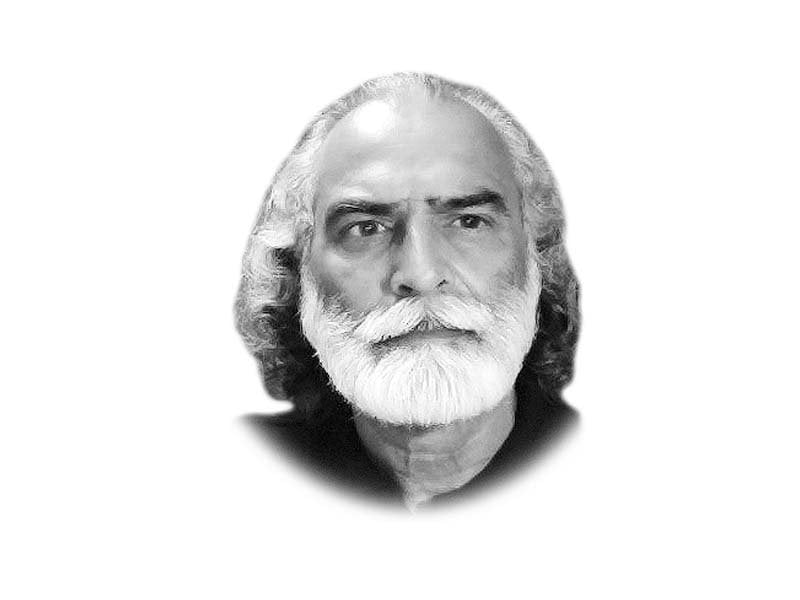
In my last column, I argued that any election in which the free will of voters is suppressed is not free. This essay discusses the fairness of elections in view of the infamous Daska bye-election and how the use of electronic voting machines (EVMs) could reduce rigging. Let’s first define the concept of a fair election. A fair election is one in which all contesting parties have a level playing field and are treated equally. Also, an un-free election cannot be counted as fair. Therefore, freeness and fairness are two sides of the same coin.
The Daska election is a good example to understand the concept of [un]fair election. The only difference between the Daska election and other elections is the scale of rigging. The perpetrators indulged in blatant violation. I call it an established rigging equilibrium. They didn’t even hesitate to kidnap the presiding officers.
The Election Commission Pakistan (ECP) and election observation groups could learn from the Daska Inquiry Reports, available on the ECP website. The reports strongly establish close collaboration between the city administration, polling staff, and politicians. The interaction among the three groups faced serious hurdles due to the fourth actor (opposition). And that caused the explosion and ruined the game plan. Historically, it was kind of a replay of the 1950s jhurlu elections. I hope this election will always be remembered in the electoral history of Pakistan as one of the uniquely rigged elections. Simply, it was overkill.
Nations don’t like overkill as it exposes systemic hypocrisies. Manto comes to my mind because his short stories publicly exposed the hypocrites. No wonder he was hated by conservative judges, police, and mullahs. The murders of Noor and Zainab must also be considered. Several murders take place every day and go unnoticed, but why did Noor’s murder or Daska election shake the ‘conscience’ of the nation? Simply because they crossed all the acceptable limits, which heightened the public rage and pushed even the otherwise slumbering state officials into a higher gear of action. In my view, if the state doesn’t react to such extraordinary situations, the people will gradually lose trust in the entire system. Therefore, cooling down the rage becomes essential for the survival of the system.
Remember the Army Public School tragedy, the mega earthquake of 2005, and the super floods of 2010. There was so much rage all over the country in the aftermath. Military and politicians rushed to help the victims to regain the trust of the people by doling out money and relief packages and setting up inquiry commissions. Once out of media, everything is forgotten. Officials usually go back into their slumber. No wonder, decades later not even ten per cent of the promises have been fulfilled.
But the rage continues to resonate on and off, here and there but never sustained. Without any lessons or reforms. The past remains the present and future. But naming and shaming the thief must continue.
The one who is caught is the thief but the arrest of thieves in one area doesn’t mean that the theft has come to an end in other areas. It continues. The same appears to be true for rigging as well. Though the overkill seldom takes place, the real problem and challenge are to end small scale but widespread rigging whose cumulative impact is much larger than a localised overkill. Based on my extensive experience and election observation, I can say this with full confidence that almost every candidate tries to influence the free will of voters and polling staff.
Someone asked late Edhi sahib how he had developed such a flawless accounting system. He replied I learnt it from those who were involved in corrupt practices. “Each attempt of the misconduct exposed the weakness of the system and by plugging them timely and effectively I improved the system,” he replied. This incremental approach is the foundation of learning and progress. Sadly, our successive election authorities did not try it, thanks to greedy and self-serving elites who appointed compliant officials at each tier of election administration to perpetuate their stranglehold. However, despite their resistance to change, it appears the use of EVMs is likely to end the widespread and normal rigging that they have excelled in.
Now consider this analogy. Studies on road safety found that human error is the sole cause in 57% of all accidents and is a contributing factor in over 90%; and mechanical error is found only in 2.4% of cases. Experts have found three major factors behind accidents: one, capability (inexperience, age, disease, alcoholism, drugs, etc); two, fatigue and psychological stress; and three, risk-taking behaviour (overconfidence, machoism, habitual speeding, disregard of traffic rules and non-use of helmet/seatbelt, etc).
Like old model cars are driven by humans, paper-based elections are administered at every stage of polling — from identification of voters to counting of ballots, tabulation of results, and their announcement manually. Tech experts almost have a consensus that autonomous or driverless vehicles will most likely reduce road accidents by 70%. Similarly, it appears EVMs will also eliminate rigging as they would replace humans within polling stations.
The entire process contains more than 25 steps — from verification of the voter to the announcement of results. Each one is administered by humans whose large majority happens to be very pragmatic. Even a small mistake or intentional omission at any stage could impact the outcome of the election of the constituency. For instance, if every presiding officer of 100 of 700 polling booths allows 20 fake voters to cast ballots for a candidate, his chances of victory will improve radically than his immediate rival.
If ECP introduces a better EVM it will most likely incapacitate the habitual riggers of their traditional tools of rigging to a large extent. However, it is pertinent to highlight here that EVMs cannot make any positive or negative impact beyond polling stations. However, its use in the next general election will most likely increase turnout because of people’s curiosity about its use.
Finally, the good news is that the ECP has formed committees for the use of EVMs and i-voting for overseas Pakistanis for the next general elections. The bad news is that a large majority of politicians seem to be least interested in reforming the electoral system comprehensively. Yet another — good or bad — news is that only donors whose own democracies are under serious stress appear to be more serious about improving our electoral governance. But we cannot rely on foreign funding alone, we must reform and indigenise its process.
Published in The Express Tribune, November 30th, 2021.
Like Opinion & Editorial on Facebook, follow @ETOpEd on Twitter to receive all updates on all our daily pieces.














COMMENTS
Comments are moderated and generally will be posted if they are on-topic and not abusive.
For more information, please see our Comments FAQ